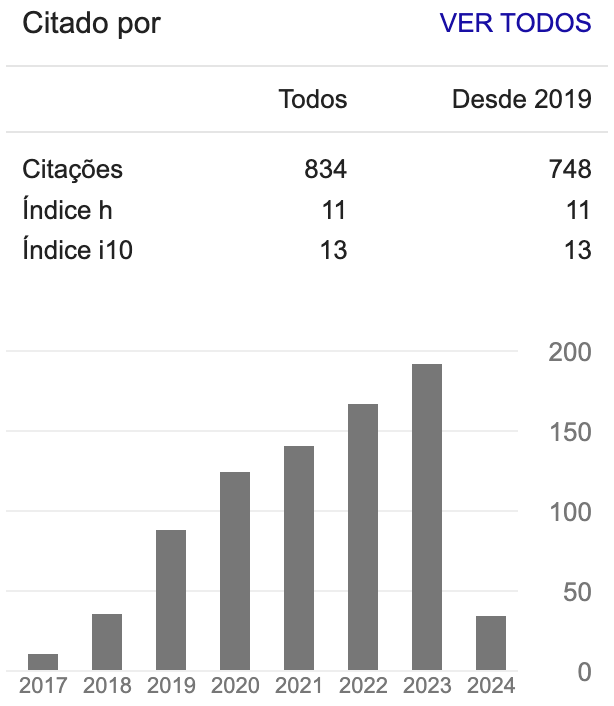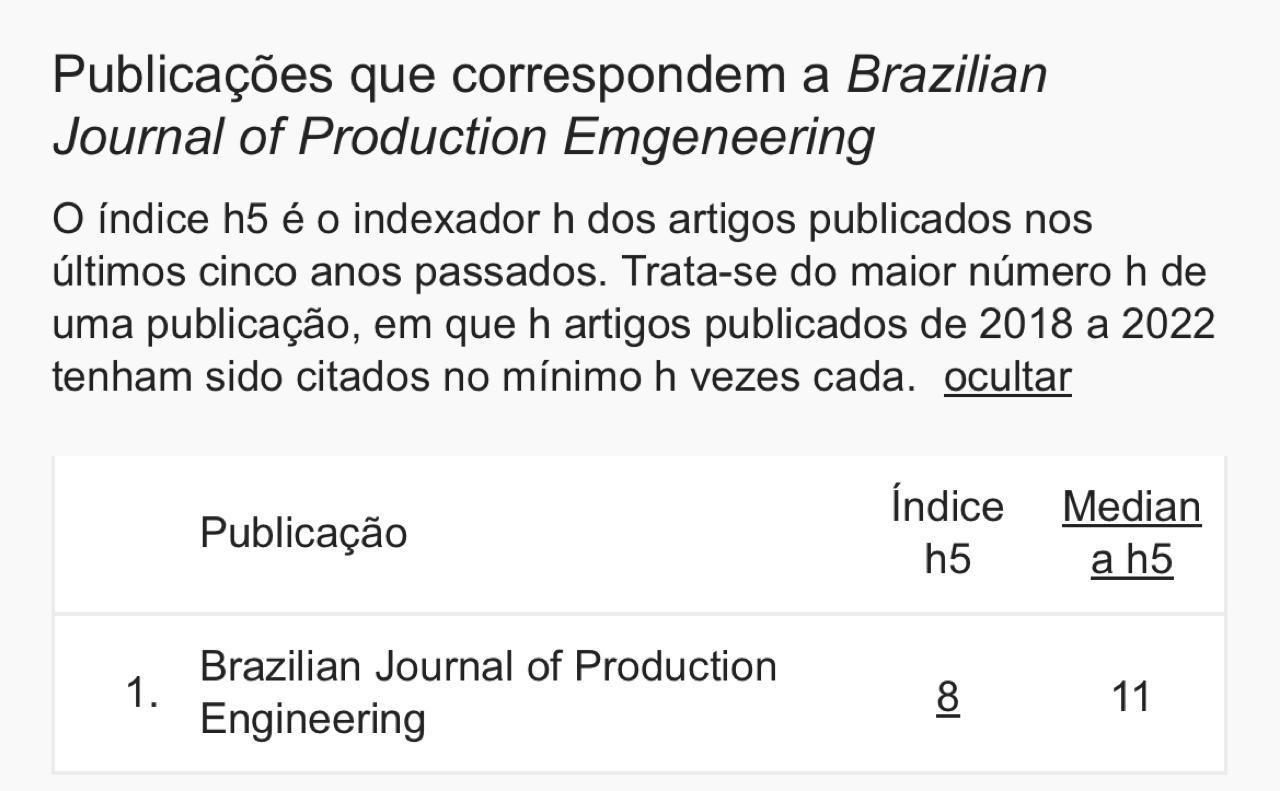Project based learning as a strategy of blended learning in the architecture and urbanism course
DOI:
https://doi.org/10.47456/bjpe.v7i4.36734Keywords:
Active learning, Extension project, Introduction to architectural projectAbstract
The paper identifies potentialities and limitations of application of the Project Based Learning (PBL) method in the second period of the Architecture and Urbanism course in an institution of higher education, in the context of deepening the blended learning model. In this way, the main theoretical issues involving the PBL method were raised and it was studied two activities developed with students of the second period with the same objective (developing a method / methodology for the execution of architectural projects), in the classroom and blended learning models. Both activities used concepts from this active learning methodology, but with different organizations and themes, to some extent resulting from the migration of the teaching model. The first activity is called “Meu Lugar”, of a playful and individual character and the second activity is an extension project, structured based on a real demand. It was observed that the two strategies are important and complementary, as the “Meu Lugar” project enables the assessment of the individual student, based on personal interests and freer conceptual propositions, while the extension project develops teamwork, service real demands and respect for current legislation and regulations, as well as the desires and needs of a specific recipient. In both cases, it was also noted the need for complementary activities and challenges, which support a technical apparatus, especially representation.
Downloads
References
Bender, W. N. (2014). Aprendizagem Baseada em Projetos: Educação Diferenciada para o Século XXI. Porto Alegre: Penso.
Benévolo, L. (2015). História da Cidade (3a ed.). São Paulo: Perspectiva.
Benévolo, L. (1998). História da Arquitetura Moderna. São Paulo: Perspectiva.
Christensen, C. M., Horn, M. B., & Staker, H. (2013). Ensino Híbrido: uma Inovação Disruptiva? Uma introdução à teoria dos híbridos. San Francisco: Christensen Institute.
Conselho de Arquitetura e Urbanismo do Brasil (CAU/BR). (2019a). Esclarecimento de dúvidas quanto a “cursos semipresenciais”. Recuperado de https://www.caubr.gov.br/comissao-de-ensino-e-formacao-esclarece-duvidas-quanto-a-cursos-semipresenciais
Conselho de Arquitetura e Urbanismo do Brasil (CAU/BR). (2019b). Deliberação nº 031/2019. Aprova Orientações sobre atividades de Extensão Universitária em cursos de Arquitetura e Urbanismo. Recuperado de https://transparencia.caubr.gov.br/arquivos/deliberacaocep0312019.odt
Costa, T. A. (2004). A noção de competência enquanto princípio de organização curricular. Anais da Reunião Anual da Associação Nacional de Pós-graduação e Pesquisa em Educação, Caxambu, MG, 27.
Hall, P. (2001). Cidades do amanhã: uma história intelectual do planejamento e do projeto urbano no século XX (2. ed.). São Paulo: Perspectiva.
Horn, M. B.; Staker, H. (2015). Blended: Usando a inovação disruptiva para aprimorar a educação. Porto Alegre: Penso.
Leandro, S. M., Corrêa, & Elisete, M. (2018). Ensino híbrido (blended learning) potencial e desafios no ensino superior. Anais do Congresso Internacional de Educação e Tecnologias, Encontro de Pesquisadores em Educação à Distância, São Carlos, SP, 24.
Masson, T. J.; Miranda, L. F., Munhoz, A. H., Jr., & Castanheira, A. M. P. (2012). Metodologia de Ensino: Aprendizagem Baseada em Projetos (PBL). Anais do Congresso Brasileiro de Educação em Engenharia, Belém, PA, Brasil, 45.
Ministério da Educação (MEC). (2019). Portaria nº 2.117, de 6 de dezembro de 2019. Dispõe sobre a oferta de carga horária na modalidade de Ensino a Distância - EaD em cursos de graduação presenciais ofertados por Instituições de Educação Superior - IES pertencentes ao Sistema Federal de Ensino. Recuperado de http://www.in.gov.br/en/web/dou/-/portaria-n-2.117-de-6-de-dezembro-de-2019-232670913
Ministério da Educação (MEC). (2010). Resolução Nº 2, de 17 de Junho de 2010. Institui as Diretrizes Curriculares Nacionais do curso de Graduação em Arquitetura e Urbanismo... Recuperado de http://portal.mec.gov.br/index.php?option=com_docman&view=download&alias=5651-rces002-10&Itemid=30192
Mumford, L. (2008). A cidade na história: Suas origens, transformações e perspectivas (5ª ed.). São Paulo: Martins Fontes.
Presidência da República (2014). Lei nº 13.005, de 25 de junho de 2014. Aprova o Plano Nacional de Educação – PNE e dá outras providências. Recuperado de http://www.planalto.gov.br/ccivil_03/_ato2011-2014/2014/lei/l13005.htm
Reese, H. W. (2011). The Learning-by-Doing Principle. Behavioral Development Bulletin, v. 11, 2011. 1–19. https://doi.org/10.1037/h0100597
Reis, F. (Org.). (2017). Destruição Criativa na Educação Superior. Construindo Modelos Inovadores e Sustentáveis Para Além da Crise Econômica. São Paulo: De Cultura.
Ribeiro, L. R. C. (2005). A aprendizagem baseada em problemas (PBL): uma implementação na educação em engenharia na voz dos atores (Tese de Doutorado em Educação). Universidade Federal de São Carlos, São Carlos, SP, Brasil.
Soares, S. G. (2001). Arquitetura da identidade: sobre educação, ensino e aprendizado (2a ed.). São Paulo: Cortez.
Souza, Z. R., & Biella, J. (2010). Currículo Baseado em Competências. Curso Currículo Contextualizado. Recuperado de https://lagarto.ufs.br/uploads/content_attach/path/11338/curriculo_baseado_em_competencias_0.pdf
Downloads
Published
How to Cite
Issue
Section
License
Copyright (c) 2021 Brazilian Journal of Production Engineering - BJPE

This work is licensed under a Creative Commons Attribution-NonCommercial-ShareAlike 4.0 International License.
Atribuição-NãoComercial-CompartilhaIgual
CC BY-NC-SA
This license lets others remix, adapt, and build upon your work non-commercially, as long as they credit you and license their new creations under the identical terms.






































































